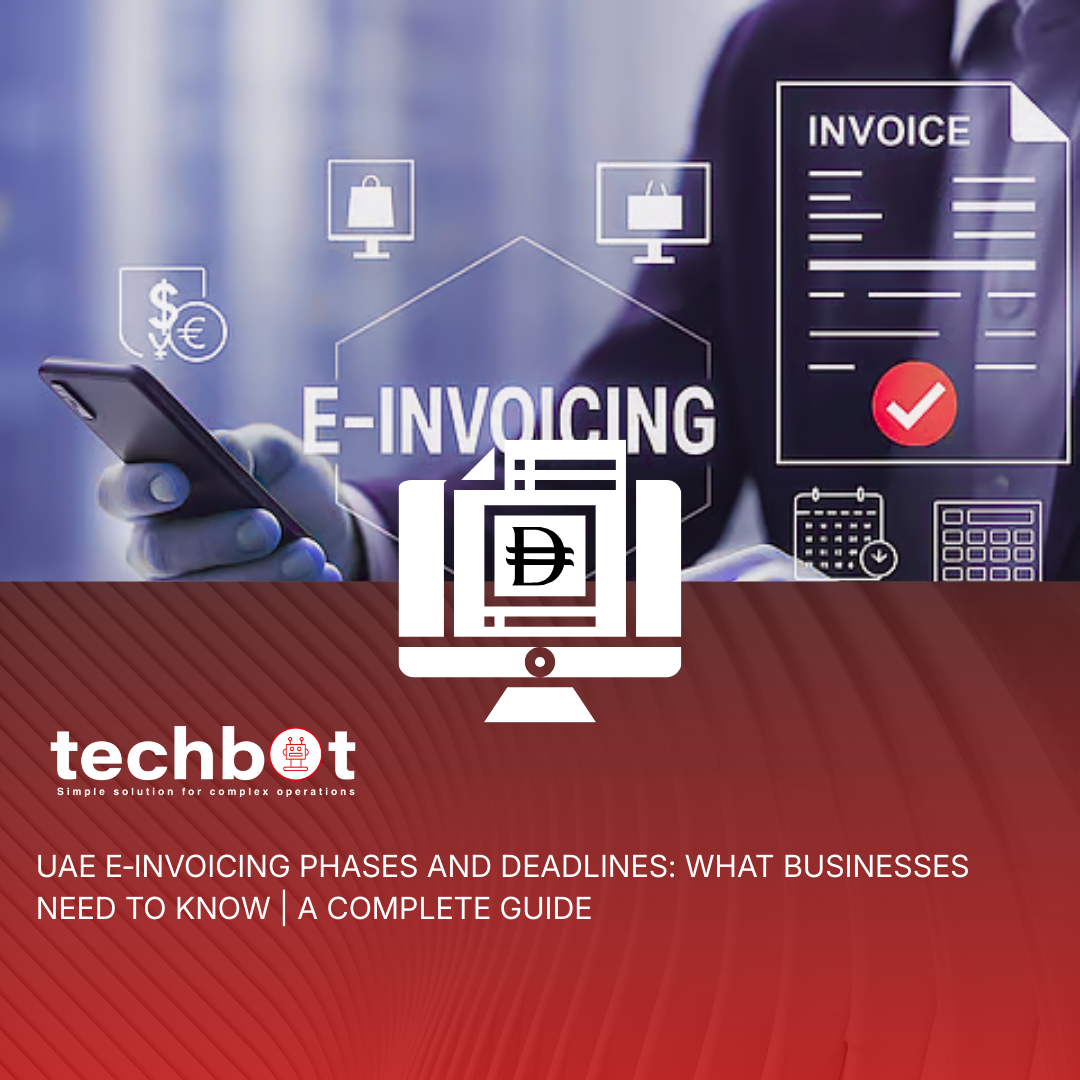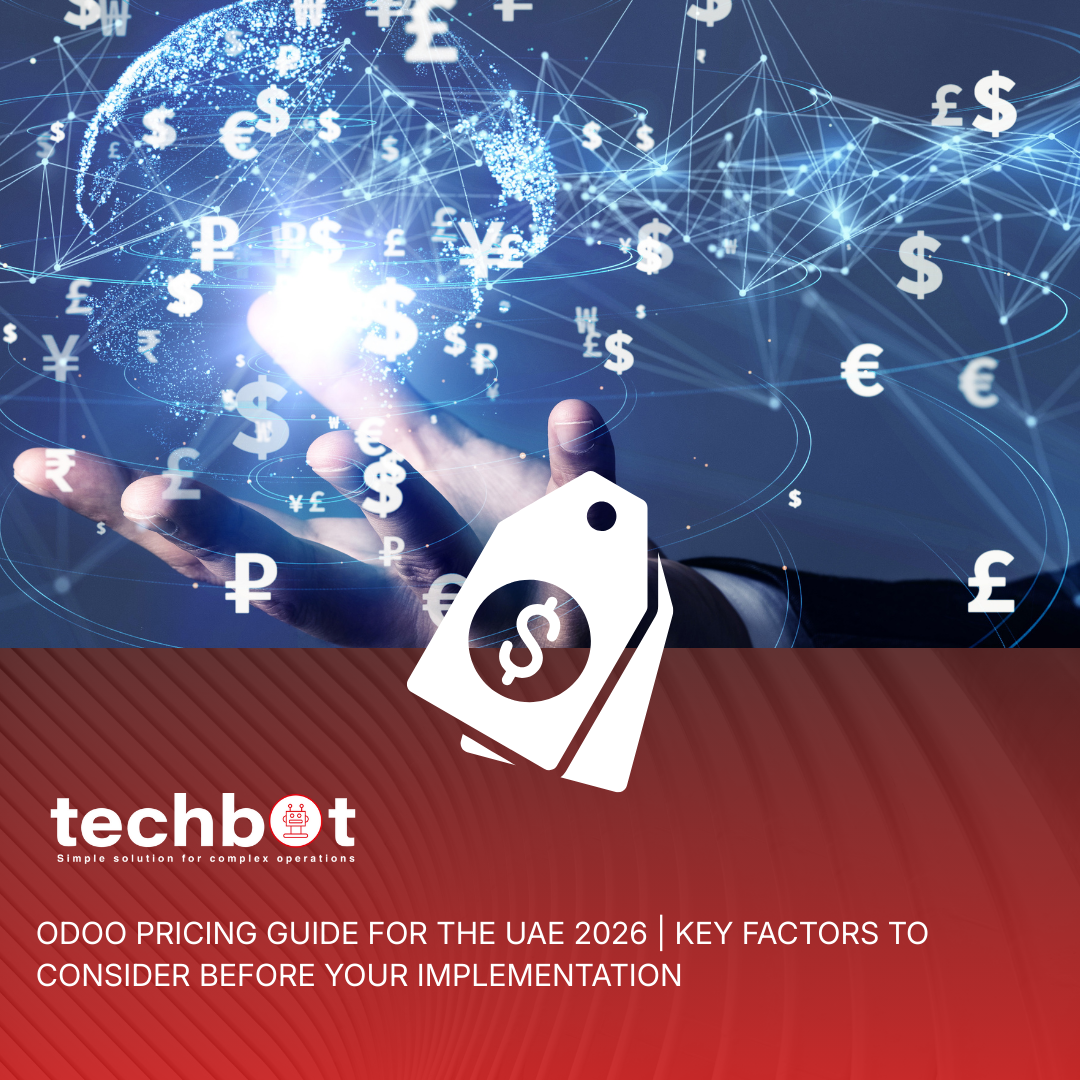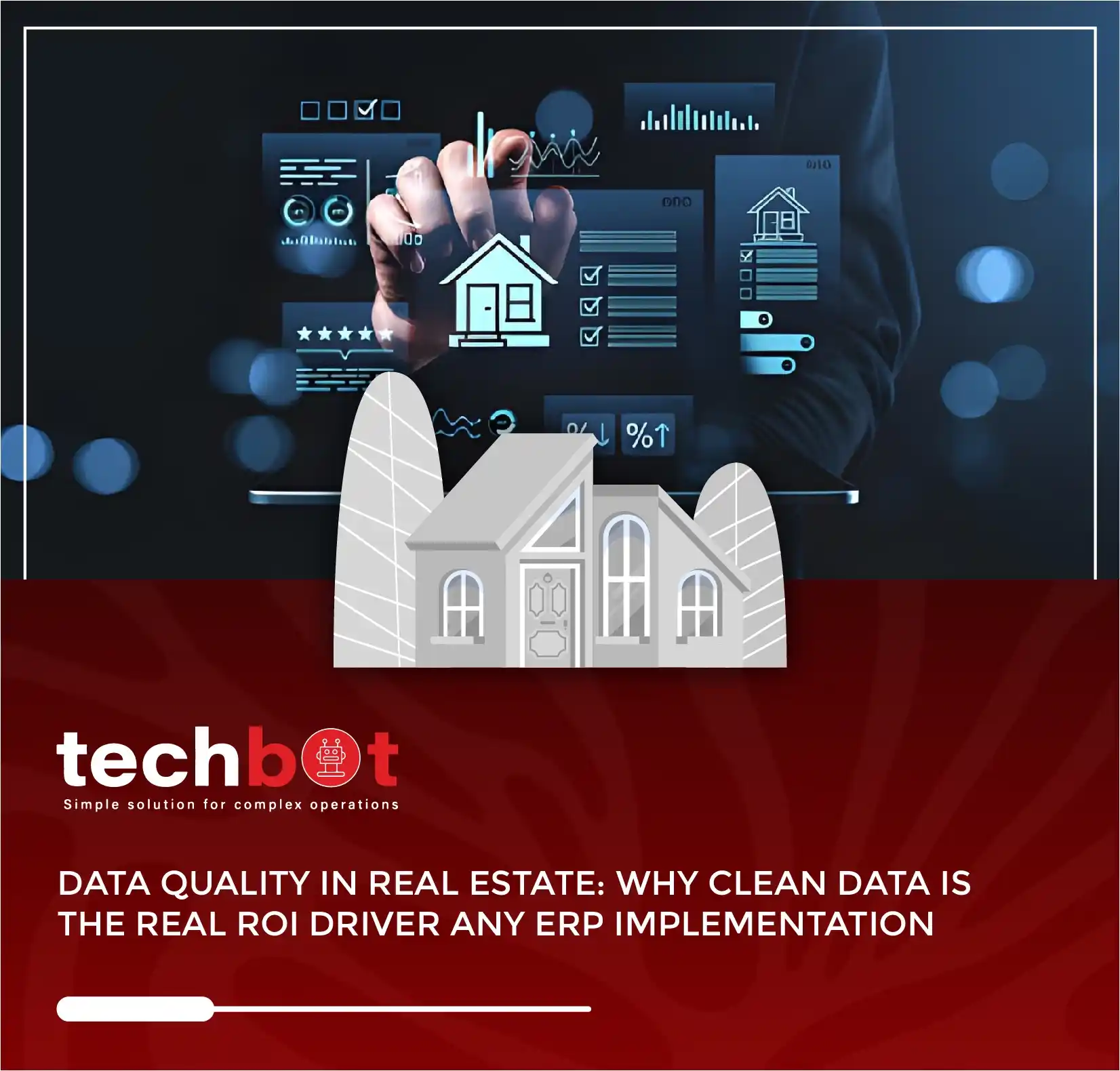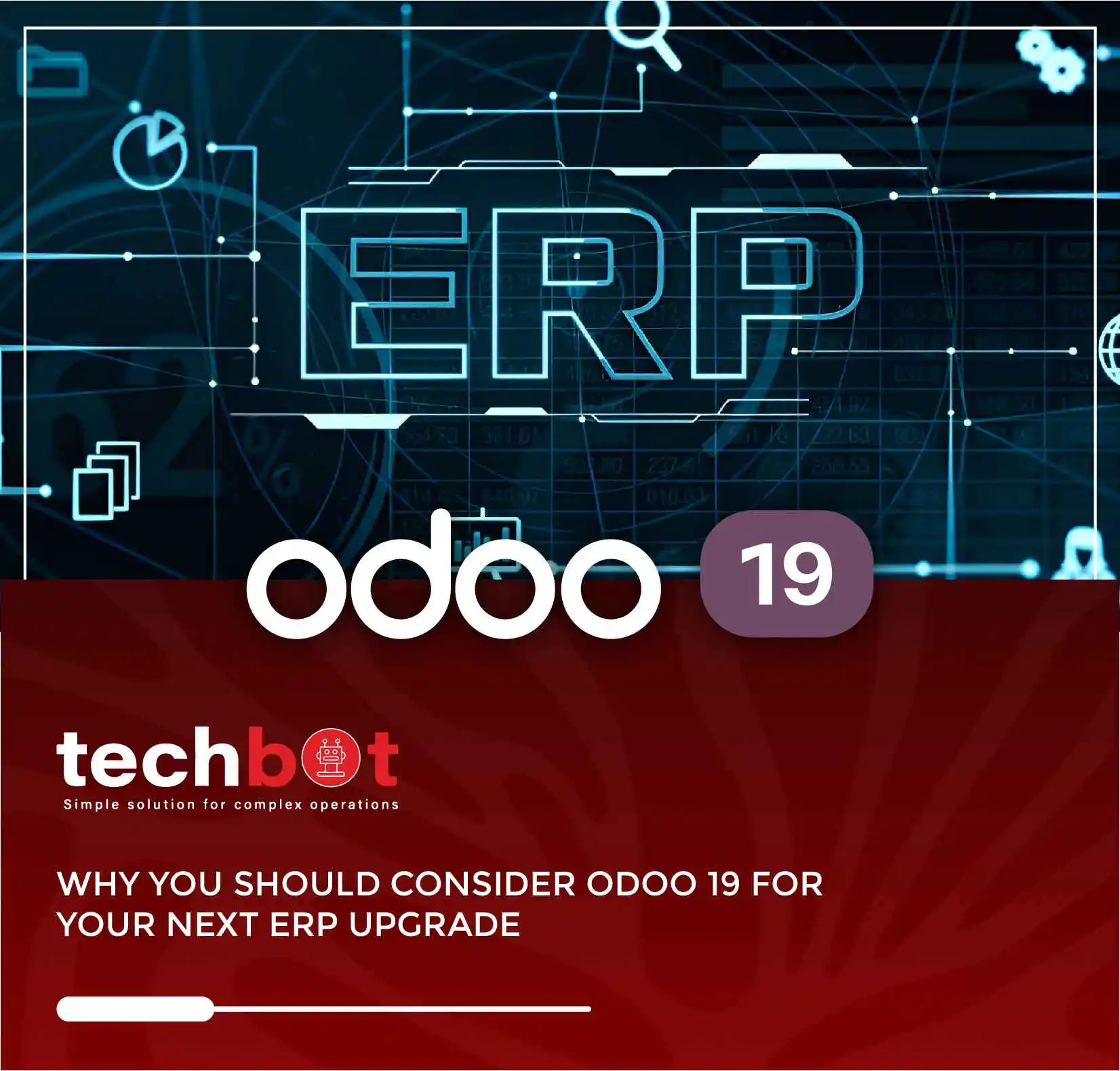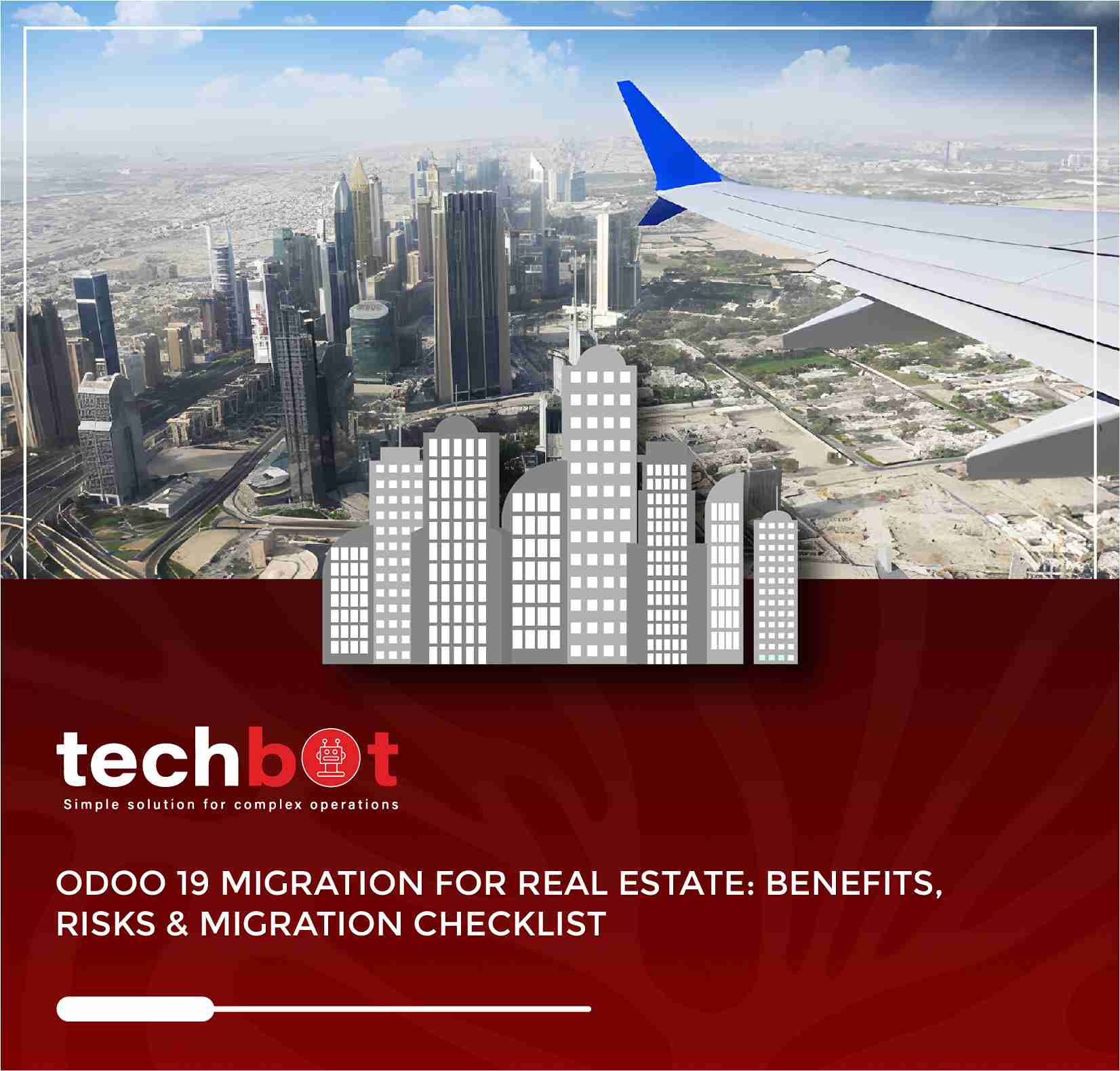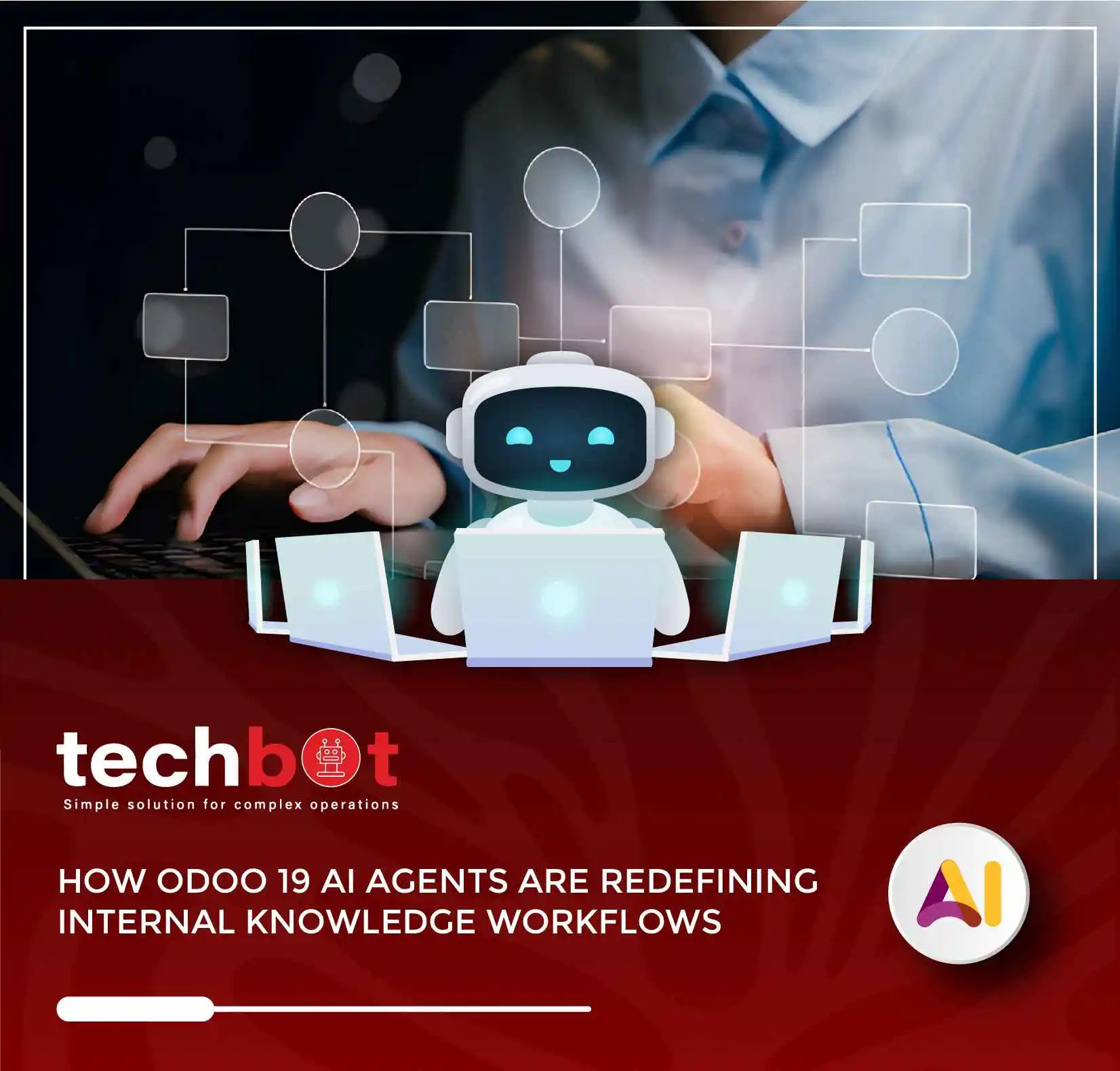ERP Trends To Watch Before Stepping Into 2026: A Comprehensive Outlook
ERP Trends to Watch Before Stepping into 2026: A Comprehensive Outlook
Moossa M. Alavi
Moossa M. Alavi is the Founder & CEO of Techbot ERP and Altamyz Advertising. He is a certified Odoo consultant with more than 27 years of experience in business, advertising, and ERP software. Moossa started his career in the UAE in 1997 with a well-known group in Abu Dhabi. Over the years, he built his own companies to help other businesses work better using technology. Moossa helps with customized ERP implementation for various industries, including manufacturing, insurance, supercar rental, and logistics, through Techbot ERP. He resolves these issues with Odoo ERP and supports businesses in growing with the right assets and guidance. Moossa has received many awards for his work, including the Arabian Best of Best Award and the Industry Leader Award from BNI UAE. He is also a BNI Ambassador and mentors other business owners. He believes in giving back to the community and helping others grow, following the “Givers Gain” principle.
Share this post
Latest Post
Recent Posts
- How our ERP solution simplifies multi property management
- UAE E‑Invoicing Phases and Deadlines: What Businesses Need to Know | A Complete Guide
- Odoo Pricing Guide for the UAE 2026 | Key Factors to Consider Before Your Implementation
- Why Clean Data Drives The Highest ROI In Real Estate ERP Projects
- ERP Trends To Watch Before Stepping Into 2026: A Comprehensive Outlook
- Importance Of ERP For Growth And Compliance In Real Estate
- Why You Should Consider Odoo 19 For Your Next ERP Upgrade
- Odoo 19 Migration For Real Estate: Benefits, Risks & Migration Checklist
- How AI Agents In Odoo 19 Are Revolutionizing Business Support
- Top 7 Odoo 19 AI Features Transforming Business Workflows
The ERP market is entering a decisive phase. Decision makers expect systems that do more than record transactions. They want platforms that understand context, surface patterns, and help teams act with confidence. According to a Statista report, the global ERP market is projected to reach nearly 81 billion USD by 2026, driven by cloud ERP adoption, AI integration, and next-generation analytics.
At Techbot ERP, your ERP growth partner, we help businesses understand not only where the ERP market is heading, but how to make these trends work for them. As we move toward 2026, ERP is transforming into a decision-intelligent platform that enhances visibility, connects operations, and empowers leadership to act in real time.
ERP is no longer a back-office tool. It is becoming the intelligent command center of every growing organization. Companies that prepare now for this shift will not only modernize workflows but also gain a strategic edge in digital transformation.
Why 2026 Is a Turning Point for ERP Systems
Enterprise systems are evolving from data entry to decision-intelligent ecosystems. A recent Gartner analysis suggests that by 2026, over 70% of new ERP deployments will use AI-enhanced modules for planning, forecasting, and compliance.
This shift is redefining ERP future trends from transactional processing to predictive, connected decision-making. Companies adopting this mindset will lead digital transformation, while those staying on legacy systems risk falling behind faster, data-driven competitors.
Businesses are realizing that ERP is not just an IT investment but a growth enabler. The systems of 2026 will shape business agility, empower leaders with insights, and simplify decision-making across every layer of the organization.
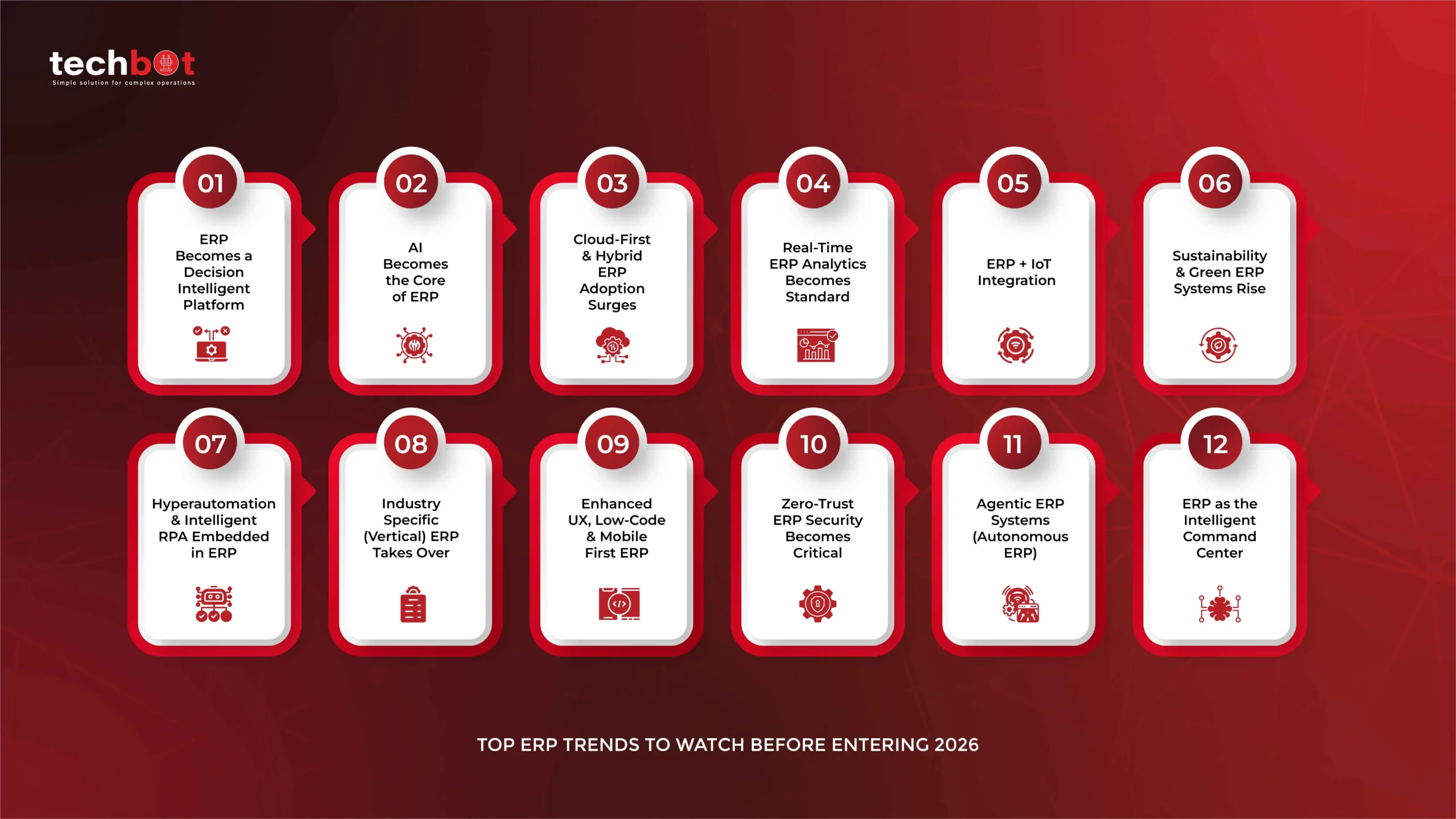
AI Is No Longer Optional in ERP Platforms
Artificial intelligence is now the foundation of modern ERP. According to IBM, AI in ERP 2026 will automate up to 60% of manual decision processes across finance, procurement, and customer management.
AI-enabled ERP software improves accuracy and speeds up operations. Predictive analytics optimize cash flow and supply chain decisions, while AI assistants handle repetitive tasks such as invoice matching or lead qualification. Real-time ERP analytics convert raw data into actionable insights, improving both speed and quality of decision-making.
The coming years will see AI become the connective tissue of enterprise systems. It will guide employees through intelligent prompts, generate recommendations, and ensure that every workflow is optimized for speed, accuracy, and cost efficiency.
The Shift Toward Cloud-First and Hybrid ERP Architectures
Cloud ERP adoption is growing rapidly. A DocuClipper ERP report shows that by 2026, 70% of new ERP implementations will be cloud-based, providing scalability, flexibility, and lower maintenance costs.
At the same time, industries with data-sensitive operations are exploring hybrid ERP models, combining the security of on-prem systems with the agility of cloud analytics. This blended model supports multi-site coordination and ensures that critical data remains under organizational control while still benefiting from next-gen ERP systems.
Cloud ERP will become the backbone of continuous innovation. Businesses that migrate early will enjoy faster updates, better data integration, and reduced infrastructure costs, setting the foundation for long-term scalability.
Real-Time Analytics and Business Intelligence Take Center Stage
In the past, ERP systems focused on historical data. The next wave emphasizes real-time ERP analytics, offering leaders live visibility into performance metrics and financial health.
According to Apps Run the World, companies using real-time dashboards report 25% faster decision cycles and 30% improvement in operational efficiency. Integrated KPI tracking, anomaly alerts, and predictive reporting will become default features in 2026.
Real-time ERP systems bring accuracy and agility together. Leaders can make faster decisions with confidence, while teams access instant insights across every department from procurement to sales to finance, ensuring a single source of truth.
ERP Meets IoT — The Smart Manufacturing Revolution
The convergence of ERP and IoT is revolutionizing industrial operations. According to BJIT Group Research, more than 60% of manufacturers already use IoT-linked ERP for equipment monitoring and predictive maintenance.
IoT sensors feed live data into ERP, allowing real-time responses to downtime, stock levels, and energy usage. This real-time ERP insight helps optimize production schedules and improve supply chain coordination, leading to higher output and lower costs.
With IoT connectivity, organizations move from reactive to proactive decision-making. Predictive maintenance, connected logistics, and machine learning analytics are redefining how manufacturers measure efficiency and profitability.
Get the latest tips and updates on ERP software solutions. Subscribe to our newsletter and stay ahead in business!

Sustainability and Green ERP Systems
ESG integration has become a strategic requirement, not just a reporting need. Modern ERP systems now include carbon tracking, waste optimization, and automated sustainability dashboards.
An SAP report highlights that organizations using ESG-enabled ERP platforms have reduced compliance preparation time by 40%. These systems consolidate sustainability metrics alongside financial performance, aligning growth with responsibility.
Sustainability in ERP is now tied to corporate performance. Real-time visibility into carbon data allows companies to meet environmental targets while strengthening brand trust and investor confidence.
Hyperautomation and Intelligent RPA
The era of repetitive manual processing is ending. ERP vendors are embedding AI-driven hyperautomation to accelerate operations across procurement, finance, and HR.
A Forrester study reveals that 70% of enterprises will use RPA integrated with AI by 2026. Hyperautomation transforms ERP from workflow support into an intelligent orchestrator, identifying inefficiencies, automating approvals, and managing exceptions autonomously.
With hyperautomation, enterprises save time and ensure data consistency. The combined power of RPA, AI, and process mining enables end-to-end optimization that reshapes how business units collaborate and deliver value.
Industry-Specific ERP Platforms
Generic ERP is being replaced by industry-customized solutions with pre-configured modules and compliance support.
Sectors like healthcare, manufacturing, retail, and real estate increasingly rely on vertical ERP solutions to manage complex regulations and local market nuances.
Reports from NetSuite and Alphabold show that vertical ERP adoption cuts implementation time by up to 35% and reduces the need for costly customization.
Industry-specific ERP platforms allow businesses to start faster with built-in logic. These systems speak the language of the sector, minimizing configuration time while ensuring compliance and accuracy from day one.
Enhanced User Experience and Mobile ERP
User experience defines ERP success. Low-code and mobile-first interfaces make ERP accessible to non-technical users, improving adoption rates across departments.
By 2026, nearly 75% of enterprise apps will be built using low-code or no-code tools, according to Kissflow Research.
AI-driven personalization, natural language search, and voice-enabled commands are becoming standard across next-gen ERP systems, enabling faster responses and reducing training time.
Modern ERP is becoming as intuitive as consumer applications. Better UX ensures employees spend less time navigating software and more time making decisions that drive revenue and efficiency.
ERP Security and Zero-Trust Architecture
Security remains a top concern. A PwC cybersecurity report warns that ERP systems are now prime targets for AI-driven attacks.
By 2026, companies must adopt zero-trust ERP frameworks with identity validation, encryption, and continuous monitoring.
Integrating AI in ERP 2026 for threat detection and anomaly analysis will help organizations protect sensitive data while meeting GDPR and regional compliance mandates.
Future-ready ERP systems will combine predictive threat intelligence with real-time analytics to safeguard transactions and ensure uninterrupted operations across the enterprise.
Preparing for the Agentic ERP Era
As we step into 2026, ERP will evolve into agentic systems, intelligent assistants capable of taking action on behalf of users. AI agents will resolve invoices, predict demand, and trigger automated actions in connected workflows.
This evolution marks the beginning of autonomous ERP, where technology supports leadership in making accurate and timely business decisions. Techbot ERP helps organizations transition toward this model by combining expertise in AI integration, ERP security, and process intelligence.
Agentic ERP brings proactive intelligence to the enterprise. It allows organizations to move from data monitoring to data-driven execution, creating a truly connected and autonomous workflow platform.
Building the Foundation for the Future of ERP
The future of ERP software is not about adding more modules or dashboards. It is about building systems that think, learn, and adapt alongside your business. As AI, cloud ERP adoption, and real-time ERP analytics continue to shape enterprise strategy, 2026 will mark the rise of organizations that operate with precision, speed, and intelligence.
Techbot ERP partners with these forward-thinking businesses to design and deploy intelligent ERP systems that are secure, connected, and purpose-built for long-term success. By integrating AI-driven automation and predictive analytics, Techbot helps decision-makers move from data collection to data confidence, where every process drives measurable growth.
The companies that adopt these ERP trends for 2026 will become the benchmark for digital excellence. They will transform workflows into intelligent ecosystems, where every transaction, customer interaction, and insight fuels business agility. The journey toward smarter, autonomous ERP systems is already underway, and those who act today will define the most efficient, data-empowered enterprises of tomorrow.
In this transformation, Techbot ERP stands as more than a technology provider; it is your trusted growth partner in shaping the future of enterprise intelligence.

Get the latest tips and updates on ERP software solutions. Subscribe to our newsletter and stay ahead in business!
Latest Post
Recent Posts
- How our ERP solution simplifies multi property management
- UAE E‑Invoicing Phases and Deadlines: What Businesses Need to Know | A Complete Guide
- Odoo Pricing Guide for the UAE 2026 | Key Factors to Consider Before Your Implementation
- Why Clean Data Drives The Highest ROI In Real Estate ERP Projects
- ERP Trends To Watch Before Stepping Into 2026: A Comprehensive Outlook
- Importance Of ERP For Growth And Compliance In Real Estate
- Why You Should Consider Odoo 19 For Your Next ERP Upgrade
- Odoo 19 Migration For Real Estate: Benefits, Risks & Migration Checklist
- How AI Agents In Odoo 19 Are Revolutionizing Business Support
- Top 7 Odoo 19 AI Features Transforming Business Workflows

